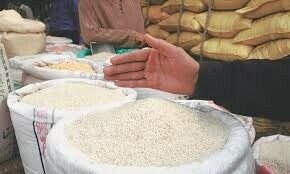 PAKISTAN and other developing countries were lured into the green revolution in the early sixties. At that time, the HYV varieties were projected to raise hopes that the world’s poor were going to be prosperous and that the ultimate in productivity had been found.
PAKISTAN and other developing countries were lured into the green revolution in the early sixties. At that time, the HYV varieties were projected to raise hopes that the world’s poor were going to be prosperous and that the ultimate in productivity had been found.
With it came the belated understanding that there were unintended consequences of chemical agriculture. These had a very serious affect on the soil health and the environment.
Having played god, these men then started bringing in other interventions as a consequence of these unintended consequences. The sustained agriculture of centuries was demolished for short-term gains. They still have not learnt the lessons and whereas the developed countries have moved towards organic agriculture, the developing countries have been subjected to the selfish design of the corporate and the multinational sector.
Over the years, the donor international agencies also pushed the developing countries into chemical agriculture and demolished all those institutions that could have led to fruitful modifications in farming. Evidence is now available that the yields from organic agriculture are in no way any less than chemical agriculture.
Pakistan is no exception to the vagaries of chemical agriculture. The country’s soils have gone toxic and if the medium is toxic what can you do about the productivity factor. The chemical fertiliser lobby indicates that there is no alternative to chemical fertilisers. In fact the inflationary costs of the consumers are primarily the result of these fertilisers and the low sustainable agriculture has given way to low output unsustainable agriculture. The country is the sufferer but the farmers are bigger losers as their only asset-land- has been degraded.
Consider what has happened. For these HYV, the farmer needed chemical fertiliser and water in excess. We have lost 24 per cent of our soils as a result of water-logging. The loss of another 23 per cent of soil is due to the use of chemical fertilisers.
For all kinds of interventions in agriculture, the vested interests used the government machinery. It was Ayub’s period and the field officers of the civil service were told that this was the most important thing that could have happened to the country and sales were pushed through the influence of the deputy commissioners and the sub-divisional magistrates.
Experiments in the US carried out at seven universities and two NGOs (influential ones) for over ten years have come up with the results pointed out in this article. In Pakistan, the work is being carried out by the former dean of soil sciences at the Faisalabad Agricultural University but the lobby of the vested interest groups is so strong that he has been made to look a maverick. He continues to fight for his convictions. The dramatic results that have come from this and collateral evidence round the world is the impact that this will have on small farmers. They no longer have to be in debt.
The input cost of organic fertiliser is so miniscule that it might be worth visiting the work of the former dean of soil sciences at Faisalabad. Not only are there dramatic increases in productivity but also in soil health. Besides this, the water-retaining capacity of the soils increased because of the organic molecules interaction with the soil molecules.
The yield of maize and other crops has increased by 66-75 per cent in countries where it is being practiced. In our country, the on farm waste material (cow and buffalo dung), chicken waste, sugar cane sludge and other plant materials could be usefully converted into organic fertiliser. Now interventions have been made according to the modern production system and this material is now available at Rs300 per bag of fertiliser containing nitrogen, phosphate and potash and reinforced by gypsum.
The entire premise of chemical agriculture has been based on interventions that productivity cannot increase unless phosphate is in the soils. Once the public sector had been used for furthering the interests of the vested groups, the famous neo-liberal argument came in to force. The public sector is corrupt and inefficient and the market is viable and its players are honest. It is far from truth.
Once the public sector control organisations were dismantled, the picture came to the front. Today DAP is available at Rs5000 plus per bag of 50 kg. What will this do to the macroeconomic framework? What will this do to the concept of comparative advantage? Who are the gainers and who are the losers?
The efficiency level of production from organic agriculture would reflect on the macroeconomic structure and would enhance the quality of life of the farmers. They could say goodbye to debts that they have encountered. The residue management in the crops would drop resulting in better consumer health. Vegetables could then be within the reach of healthy consumers. The rich and the powerful surrogates will make every effort not to allow this to happen.
Whatever may have happened in the past, the point is that small farmers should be looked after, sweeping aside the opposition of the special interests.












































Dear visitor, the comments section is undergoing an overhaul and will return soon.